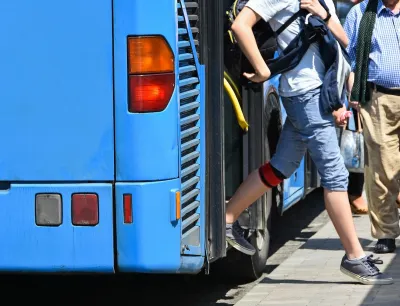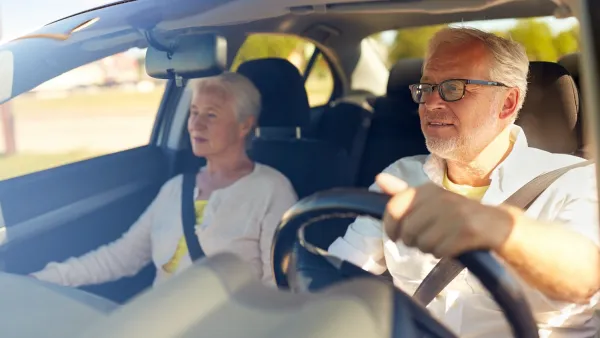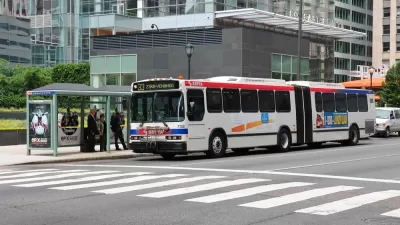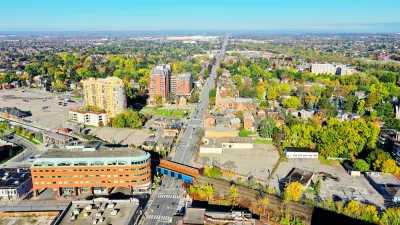Sidewalks are an intuitive, low-cost, and easily accessible mobility tool. Can local buses function in the same way?

In a piece for Fast Company, Andy Boenau argues that city buses should serve residents in the same way that sidewalks do, offering intuitive, easy-to-use mobility.
A well-run bus system is an express sidewalk—a piece of infrastructure that dramatically expands the number of destinations within walking distance.
However, “In most American cities, public transit is treated like a last-resort service, a social program for people who can’t afford cars, something to be endured rather than embraced.” Transit systems are underfunded, so their service becomes “infrequent, inconvenient, hard to use, and often stuck in traffic.”
Boenau lists four key principles that support an effective transit system: frequency, convenience, safety, and reliability. Bus stops should be readily available, with frequent service to places people want to go and safe, comfortable places to wait. “If general purpose car traffic dominates the curb, buses will never scale, and walking—the most ancient, equitable form of transport—remains functionally capped.”
As Boenau notes, “we don’t build sidewalks out of pity. We build them because they’re essential infrastructure like plumbing or electricity.” Local transit systems could be a similarly crucial resource. “The moment we stop treating the bus as a social program and start treating it like an express sidewalk, we unlock a public good that meets people where they are and moves them forward.”
FULL STORY: The local bus should be like a sidewalk with a motor

Rethinking Redlining
For decades we have blamed 100-year-old maps for the patterns of spatial racial inequity that persist in American cities today. An esteemed researcher says: we’ve got it all wrong.

Planetizen Federal Action Tracker
A weekly monitor of how Trump’s orders and actions are impacting planners and planning in America.

California High-Speed Rail's Plan to Right Itself
The railroad's new CEO thinks he can get the project back on track. The stars will need to align this summer.

US Senate Reverses California EV Mandate
The state planned to phase out the sale of gas-powered cars by 2035, a goal some carmakers deemed impossible to meet.

Trump Cuts Decimate Mapping Agency
The National Geodetic Survey maintains and updates critical spatial reference systems used extensively in both the public and private sectors.

Washington Passes First US ‘Shared Streets’ Law
Cities will be allowed to lower speed limits to 10 miles per hour and prioritize pedestrians on certain streets.
Urban Design for Planners 1: Software Tools
This six-course series explores essential urban design concepts using open source software and equips planners with the tools they need to participate fully in the urban design process.
Planning for Universal Design
Learn the tools for implementing Universal Design in planning regulations.
City of Camden Redevelopment Agency
City of Astoria
Transportation Research & Education Center (TREC) at Portland State University
Regional Transportation Commission of Southern Nevada
Toledo-Lucas County Plan Commissions





























